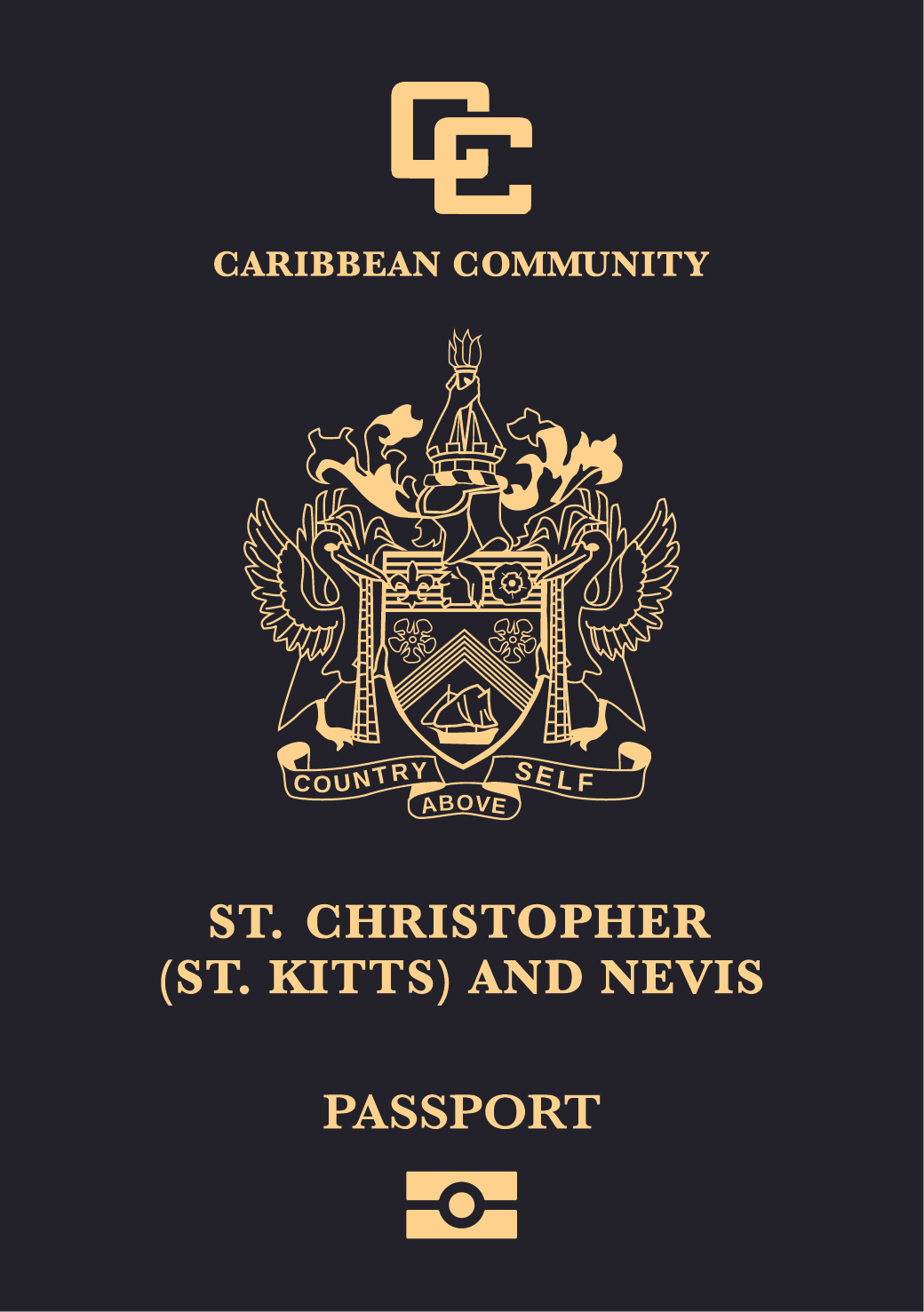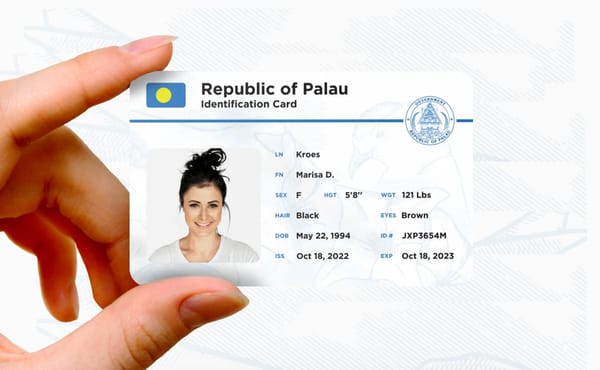The Palau ID KYC feature is over: the Republic of Palau recently introduced restrictions on the program for US citizens, along with the presumed impossibility of using the Palau Digital Residency as proof of address for KYC on crypto exchanges.
These modifications effectively terminate the main function of RNS.ID, which was validating legal identities for know-your-customer (KYC) and anti-money laundering (AML) procedures.
The program claims to have earned over $1 million (as of 2023), but the hints of displeasure from US regulators implicit in the X thread from RNS.ID essentially shuts the door on this form of identification for anyone seriously considering a worthwhile backup plan for residency or citizenship.
US Restrictions
— RNS.ID 🌏 (@RNS_global) May 16, 2024
Our director just had a challenging conversation with US regulators.
Many of those who were using the Palau Digital Residency program as a tool to protect their privacy, for example, when opening accounts on crypto exchanges such as Binance, ByBit, Kucoin, OKX, Bitget, Kraken, or Coinbase, are now in search of alternatives so as not to lose to access to these services while maintaining the privacy of their primary passports.
If you're looking for alternative identity solutions to invest in Bitcoin, Ethereum, or engage in crypto trading and blockchain projects, here are the three best Palau Digital Residency and Physical ID card alternatives:
List of Palau Digital Residency ID Alternatives:
These are the three best Palau ID KYC alternatives for 2025:
- Investing in citizenship and getting a second passport
- Getting another e-residency in a place like Estonia
- Incorporating an LLC and operating as a business

1/ Acquiring a Second Passport: Best Long Term Solution for Legal Identity.
Core Benefits:
- A passport is the utmost legal identity verification document. This means, you will be able to use your second passport to do KYC/AML processes worldwide, as it will have the same validity as your main passport.
- Risk management and portfolio diversification. The same way you don't put all your eggs in one basket, you shouldn't have only one passport. This poses significant risks in the event of regulatory changes. Having multiple citizenships will not only help you to selectively reveal yourself to the world but will also give you a hedge against political instability.
- Lifelong rights as a citizen. Citizenship is the highest legal bond between an individual and a country. This means that you will forever have citizen rights in that country, such as living unrestrictedly or traveling visa-free with the country's passport. This is considerably superior to, for example, the tenuous and ill-defined status of being a 'digital resident' of Palau.
Cost:
The fastest, easiest way to acquire a second passport is through capital-based citizenship. Numerous Citizenship By Investment programs allow investors and their families to acquire direct citizenship in exchange for an economic contribution the host country, with minimum investments ranging from $130,000 USD to +$1m USD.
Leading investment citizenship destinations include Caribbean nations like St. Kitts & Nevis, Dominica, and St. Lucia, as well as European options like Malta and Montenegro. Each program offers unique advantages - from visa-free travel to over 150 countries to favorable tax structures and quick processing times.
As we have observed with the Palau digital residency experiment, not all forms or "second residency" are created equal. Not by a long shot. What distinguishes reputed Citizenship By Investment (CBI) programs is their established legal frameworks and decades-long track records of successful citizenship grants.
CitizenX provides the only secure and private platform for acquiring citizenship in investor-friendly countries. Through Swiss engineering and 24/7 concierge service, we help you diversify your passport portfolio and secure a safe future for you and your loved ones.
CitizenX makes investing in citizenship extremely easy, through traditional means and even by facilitating the use cryptocurrencies like BTC, ETH, and USDt.
Discover the three best passports for crypto investors here.

2/ Estonia e-residency: Beware. Advertised as a cheap alternative to Palau ID but generally not accepted for KYC
Strengths:
- First e-residency program in the world.
- Allows you to incorporate companies in Estonia and access the EU market.
- Can be a good starting point for beginners looking to diversify their identity footprint.
Weaknesses:
- Generally valid only to operate as a business, not as an individual as it's generally not accepted for KYC/AML processes as a no-photo ID.
- No physical residency rights.
- Like its Palauan counterpart, this is also a digital identity with a government-issued ID, closer to a driver's license than a full-blown identity such as citizenship and a passport. This comes with limitations in terms of international recognition and validation.
- The processes have become increasingly complex and more invasive as more digital nomads started using it.
E-RESIDENCIES ARE NOT REAL RESIDENCIES.
— Alex Recouso (@alexrecouso) December 17, 2024
Here's what everyone gets wrong: digital residencies don't give you the same rights as migratory residency let alone citizenship.
Obviously, they don't come with the same liabilities as tax residency (imagine taxing people for belonging… pic.twitter.com/oAdsJzWQ56
Costs:
Estonian e-Residency, a digital identity program that allows non-Estonians to access various online services, currently costs €100 if picked up in Estonia or €120 if collected at an Estonian embassy.
However, starting January 1, 2025, the fee will increase to €150 for both application and renewal. Additional costs to consider include company registration fees (€265 state fee plus €25 + VAT service fee), establishment of a legal address, local contact liaison services (averaging €200-400 annually), and accounting services (starting from €50 monthly).
Learn More About Estonia e-Residency: https://www.e-resident.gov.ee/
Learn More About Palauan e-Residency: https://rns.id

3/ USA LLCs: Good for privacy but limited in scope to operating as a business.
Strengths:
- Best-in-class privacy protection from corporate surveillance in states like Wyoming, Delaware, and Nevada, where owner information is not publicly accessible
- Access to many financial services and tools in the USA, including business bank accounts, payment processors, and investment platforms
- Strong asset protection through the separation of personal and business liabilities
- Flexibility in management structure and tax treatment (can be taxed as a partnership or corporation)
- No requirement for physical presence in the USA
Weaknesses:
- Only valid to operate as a business, not as an individual. This means you can't use the LLC for personal KYC verifications or non-business activities
- In many cases you will be asked to disclose the UBO (ultimate beneficial owner) for KYC/AML purposes, revealing your primary identity
- Recent regulations, such as the Corporate Transparency Act (CTA), require reporting of beneficial ownership information to FinCEN
- Additional compliance requirements including annual reports, tax filings, and maintaining a registered agent
- Many crypto exchanges now specifically prohibit business accounts or require enhanced due diligence for corporate customers
- Operating as a US entity may create tax reporting obligations and require you to file annual returns with the IRS
Costs:
The cost of opening an LLC in the USA varies significantly by state, with filing fees ranging from $35 to $520.
However, the total expense can be higher when considering additional factors such as publication requirements in some states, registered agent fees, operating agreement drafting, and compliance costs.
Some states, like Arizona, Arkansas, and Colorado, offer more affordable options with filing fees as low as $50. It's important to note that beyond the initial filing fee, many states require annual or biennial fees to maintain the LLC, which can range from no fee to several hundred dollars. Overall, entrepreneurs should budget between $100 and $1,000 for LLC formation, depending on their state and specific business needs
Learn More About LLCs: https://www.firstbase.io.
What's the Best Alternative to the Palau ID for KYC?
| Features | Citizenship | Estonia e-residency | USA LLC |
|---|---|---|---|
| Multi-jurisdiction | Yes | EU Only | US Only |
| Digital Identity | Yes | Yes | No |
| Physical Identity | Yes | No | No |
| Cryptocurrency | Yes | No | Limited |
| KYC/AML validity | Global | Corporate | Corporate |
| Global Recognition | Full | No | Corporate |
Summary
While Palau was one of the pioneers for digital ID (DID) verification, sovereign individuals in 2025 need more comprehensive solutions in an increasingly complex regulatory landscape.
The evolving nature of global KYC requirements, combined with stricter enforcement of identity verification standards, means that simplified digital solutions no longer provide adequate coverage for international financial operations.
If you're looking to get a solid identity solution through a second passport and citizenship, CitizenX offers the most private and secure platform for investing in citizenship.
Ready to diversify your passport portfolio? Start your application with CitizenX today.




